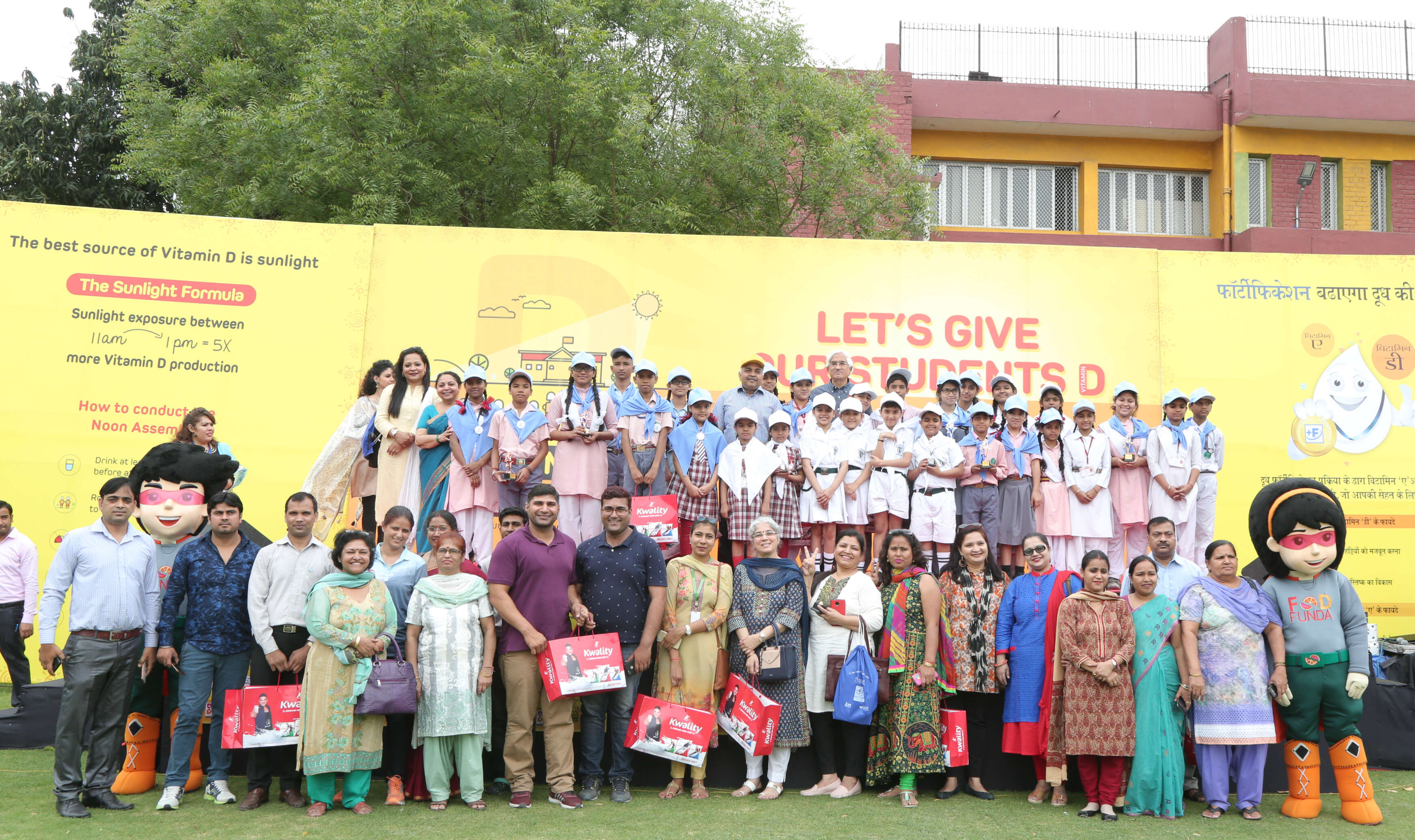- Industry
- 3 min read
Noon Assembly in schools to address vitamin D deficiencies
Project Dhoop seeks to promote sunlight as a natural source of Vitamin D for children. Schools urged to shift‘Morning Assembly’ to ‘Noon Assembly’ – the best time for students to soak in sunlight for natural absorption for Vitamin D.

Micronutrients including vitamins are needed by people in only very small amounts, but these are the “magic wands” that enable the body to produce enzymes, hormones and other substances essential for proper growth and development. As tiny as the amounts are, the consequences of their absence are very severe. Vitamin A, D, B12, Iron, Folic Acid and Iodine, are the most important; their lack represents a major threat to the health and development of populations the world over, particularly children and pregnant women in countries like India.
For Vitamin D, fish and fish products are the only real food sources. For most Indians, Vitamin D is mainly obtained by exposure to sunlight without which deficiency is likely to occur. Sunlight’s action on cholesterolin the skin converts the cholesterol to Vitamin D via additional conversions in the liver and kidneys. Many factors can contribute to Vitamin D deficiency such as overuse of sun screen, wearing clothes that cover most of the skin, working inside all day in air-conditioned atmosphere etc.
Most parts of India receive abundant sunshine all the year through. Yet shockingly, studies have found that more than 90% of boys and girls across various Indian cities are deficient in Vitamin D. In Delhi alone, 90-97% of school children (aged 6-17 years) have Vitamin DDeficiency and around 10-11% of these children exhibit signs of Vitamin D Deficiency.
At the launch event of Project Dhoop, organized at National Bal Bhavan, New Delhi Mr. Pawan Agarwal, CEO, FSSAI said, “Despite the fact that most children suffer from Vitamin D deficiency in India, most of us are not aware of its serious consequences. FSSAI has always endeavored to educate the community about such pressing issues. Project Dhoop’s Noon Assembly is an innovative and effective concept to ensure that school students get adequate Vitamin D through sunlight, while also opting to choose food products like milk and edible oilsthat are fortified with Vitamins A and D. He pointed out that opting for fortified foods (with +F symbol) is a simple and inexpensiveway to address micronutrient deficiencies without any radical change in behavior or eating patterns.He pointed out that “both fortified milk and fortified edible oil are now readily available across the country.”
Speaking at the launch event, Retired Major General Dr. R K Marwaha, Scientific Advisor and Senior Consultantendocrinology said, “Human body needs adequate Vitamin D to make its bones strong and other systemic functions of body. Nearly 90% of body’s Vitamin D requirement is met by adequate exposure to sunlight and only 10% is met through diet. Contrary to popular belief that morning sunshine is best for our bones, it is actually the sunshine from 11AM to 1PM that is most beneficial in increasing Vitamin D levels in human body because of best UVB radiations. Interestingly, 40-60% of the adult bone mass is accumulated during childhood. Hence, it is very important that children are exposed to sunshine for stronger bones and immune system.”



COMMENTS
All Comments
By commenting, you agree to the Prohibited Content Policy
PostBy commenting, you agree to the Prohibited Content Policy
PostFind this Comment Offensive?
Choose your reason below and click on the submit button. This will alert our moderators to take actions